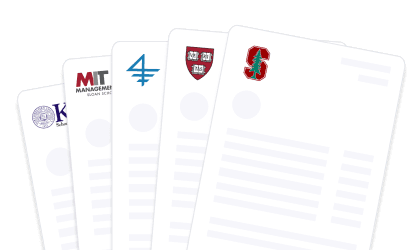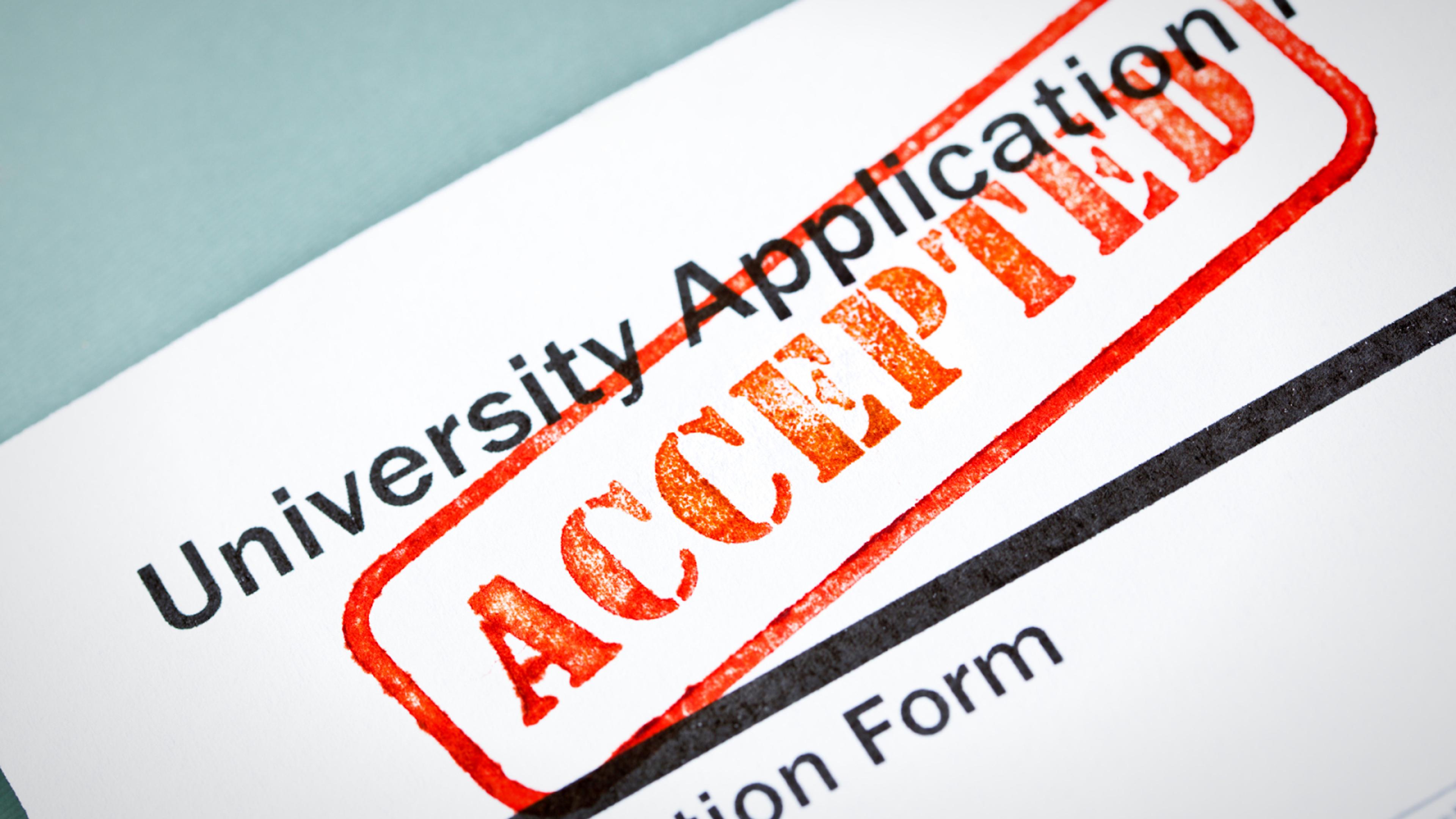Columbia Business School MBA: Acceptance Rate, Deadlines, Cost, Requirements, & Program Overview
Applying to CBS? Read this guide for the most practical strategies and tips curated by the best MBA admissions coaches in the world and Columbia alumni to get you that much closer to your dream school.
Posted July 15, 2025
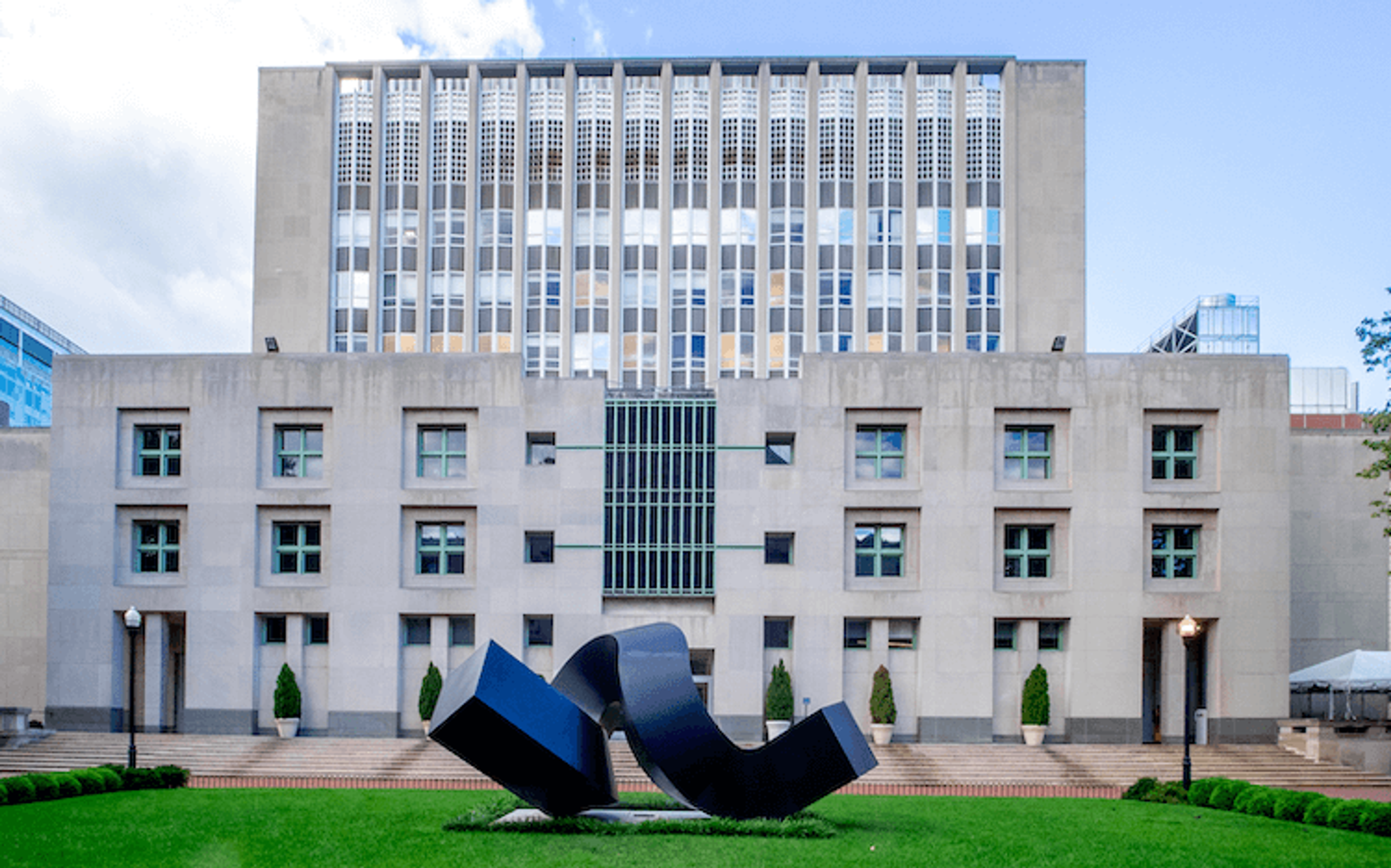
Join a free event
Learn from top coaches and industry experts in live, interactive sessions you can join for free.
Table of Contents
Columbia MBA Program Overview (2025)
Founded in 1916, Columbia Business School (CBS) is one of the most prestigious business schools in the world. Located in New York City, CBS offers students unparalleled access to global business leaders, financial institutions, and a dynamic entrepreneurial ecosystem. The school is part of Columbia University, a member of the Ivy League, and is widely recognized for its rigorous academics, influential faculty, and a diverse, high-achieving student body. Columbia's MBA program includes key metrics and factors such as average GRE and GMAT scores, minimum work experience, tuition costs, application deadlines, and acceptance rates.
Columbia Business School’s MBA program is designed for ambitious professionals seeking a transformative experience that prepares them for leadership roles in finance, consulting, technology, entrepreneurship, and other industries. The school emphasizes real-world application of business concepts, offering a curriculum that blends theoretical foundations with practical experience. With a flexible and customizable curriculum, CBS enables students to tailor their education to their career goals. The program is supported by various academic divisions, which contribute to the diverse academic offerings and structure. The new Manhattanville campus features David Geffen Hall, a key building with technologically advanced classrooms and multifunctional spaces.
Columbia Business School Acceptance Rate
The acceptance rate for Columbia Business School's MBA program for the Class of 2026 is approximately 21%, based on 7,487 applications received and 972 students enrolled. In comparison, the Class of 2025 had an acceptance rate of around 22%, with 5,895 applications received and approximately 900 students enrolled, indicating a slightly more competitive admissions process for the latest class.
Columbia MBA Class Profile (2026)
- Total Applications Received: 7,487
- Total Enrolled: 972 students (divided into 14 clusters)
- January Entry Class Size: 238 students (4 clusters)
- August Entry Class Size: 734 students (10 clusters)
- GMAT Scores (Average): 732
- GMAT Scores (Range): 600–780
- GRE Verbal Scores (Average): 162
- GRE Quantitative Scores (Average): 162
- Undergraduate GPA (Average): 3.6
- Average Work Experience: 5 years
- Women: 44%
- International Citizens: 46%
- Minority of U.S. Origin: 44%
Read: Columbia MBA Class Profile
Columbia's MBA program is highly competitive, with detailed admissions statistics such as average GRE and GMAT scores, work experience requirements, tuition costs, and application deadlines. Understanding these requirements helps prospective students gauge the program's competitiveness and prepare accordingly.
J-Term students start their MBA studies in the Spring Semester, offering flexibility as they engage in classes while others complete internships during the Summer Semester. This structure provides different paths for students within the program.
Columbia MBA Student Race & Ethnicity Breakdown
| Category | Federal Reporting (%) | Multi-Dimensional Reporting (%) |
|---|---|---|
| Asian American | 24% | 27% |
| Black/African American | 7% | 9% |
| Hispanic/Latinx | 9% | 9% |
| White | 51% | 61% |
| Multi-Racial | 3% | - |
| Did Not Report | 5% | 5% |
Columbia MBA Cost — Tuition & Fees
The cost of attending the Columbia MBA program varies based on factors such as housing, personal expenses, and program duration. The tuition costs for the Columbia MBA program are $84,496, and financial considerations include mandatory fees, health services, and insurance.
| Expense Category | Cost (USD) |
|---|---|
| Tuition | $84,496 |
| Mandatory Fees | $4,460 |
| Health Services & Insurance | $5,900 |
| Room & Board | $25,000 |
| Books & Supplies | $900 |
| Personal Expenses | $6,000 |
| Total Estimated Cost | $124,848 |
Columbia Business School Employment Report
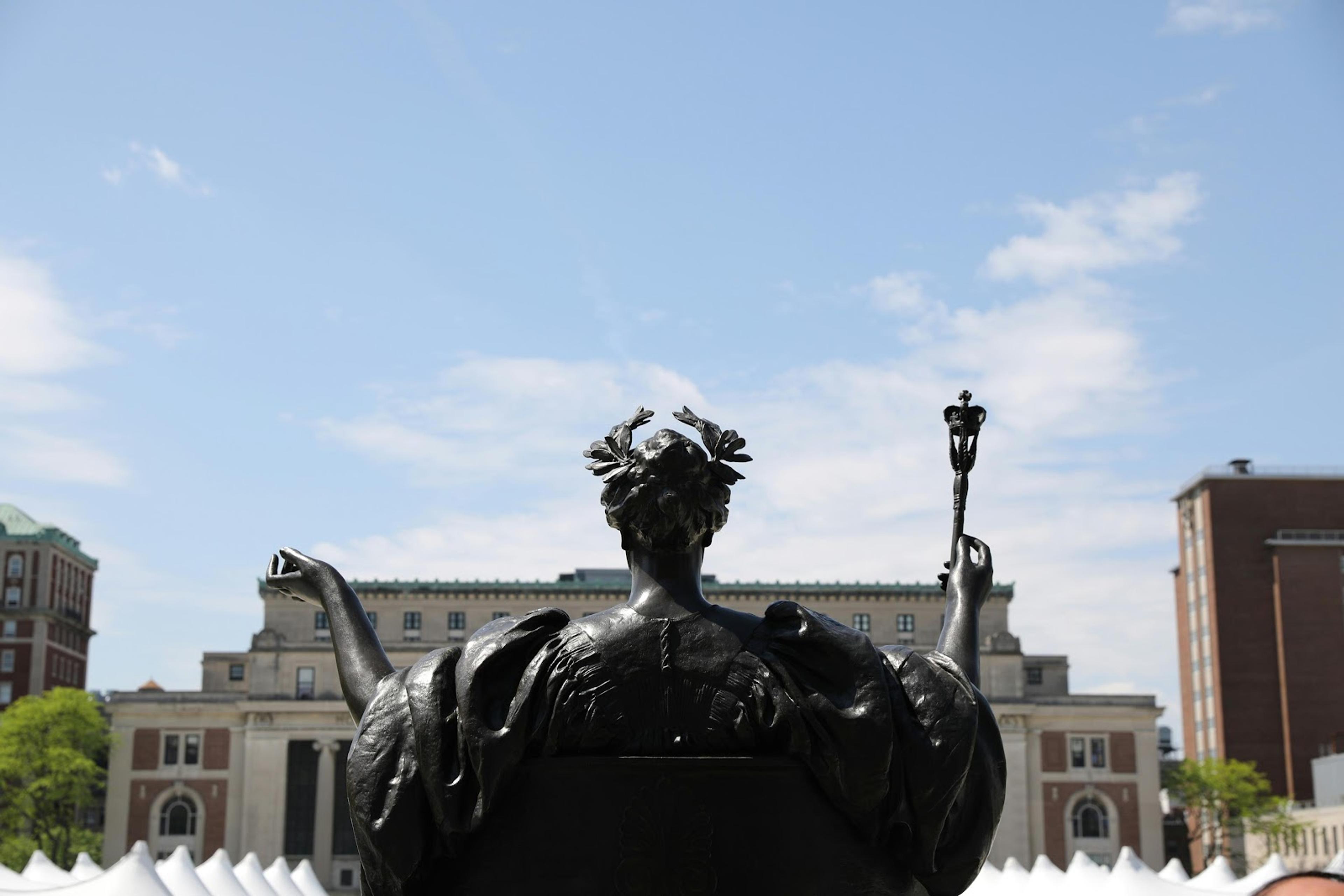
Graduates from CBS secure jobs across multiple industries, with competitive salaries and strong career growth. The Career Management Center supports MBA students in securing positions after graduation.
- Average Base Salary: $175,000
- Median Signing Bonus: $30,000
- Employment Rate (3 months post-graduation): 94%
On-campus interviews for summer internships commence in January, emphasizing the importance of timing and resources available for students.
Top Hiring Industries:
| Industry | % of Graduates |
|---|---|
| Consulting | 33% |
| Financial Services | 27% |
| Technology | 15% |
| Healthcare | 7% |
| Consumer Goods & Retail | 5% |
| Other | 13% |
Columbia Business School Application Overview
Full-Time MBA Program (August & January Entry)
Columbia’s Full-Time MBA program offers two distinct entry points:
- August Entry: The traditional two-year MBA program, which includes a summer internship after the first year.
- January Entry (J-Term): A 16-month accelerated MBA program designed for professionals who do not need a summer internship and want to return to the workforce more quickly.
Both entry points merge in the fall of the second year, where students complete electives and graduate together.
Executive MBA Programs (EMBA)
Columbia Business School Executive Education or (EMBA) programs are designed for mid-to-senior-level professionals who want to earn an MBA without taking time off from their careers. These programs provide schedule flexibility, allowing students to continue working while advancing their leadership and strategic thinking skills.
Columbia EMBA Programs:
- Executive MBA – New York
- Meets on Saturdays or alternating Fridays and Saturdays in New York City.
- Designed for working professionals across various industries.
- EMBA-Global Americas & Europe (in partnership with London Business School)
- A global executive MBA program with classes in New York, London, and other international locations.
- Offers dual-degree flexibility and an international business perspective.
- The Europe program is part of a collaborative effort with London Business School for global executives, providing international exposure and a diverse learning experience.
- EMBA-Global Asia
- A partnership with London Business School and the University of Hong Kong.
- Focuses on business in Asia-Pacific and global markets.
Columbia Deferred MB Enrollment Program
Columbia’s Deferred Enrollment MBA is designed for undergraduate or master’s students who want to secure a spot in the MBA program early and gain 2-5 years of professional experience before matriculating. This program allows young professionals to plan their MBA while gaining valuable work experience.
Joint Degree Programs
Columbia Business School offers several joint-degree programs in collaboration with other Columbia University graduate schools. These programs allow students to specialize in multiple disciplines while earning an MBA.
MBA Joint Degrees at CBS:
| Joint Degree | Partner School | Key Focus |
|---|---|---|
| MBA/JD | Columbia Law School | Business & Law |
| MBA/MPH | Mailman School of Public Health | Healthcare Management |
| MBA/MS | Engineering & Applied Science | Technology & Innovation |
| MBA/MIA | School of International & Public Affairs | International Affairs |
| MBA/MD | Vagelos College of Physicians & Surgeons | Healthcare Leadership |
Columbia Business School Application Deadline
August 2025 Entry Deadlines
| Round | Application Deadline | Interview Decisions | Final Decisions |
|---|---|---|---|
| Round 1 | September 3, 2025 | By November 13, 2025 | By December 15, 2025 |
| Round 2 | January 6, 2026 | By February 19, 2026 | By March 31, 2026 |
| Round 3 | March 26, 2026 | By May 1, 2026 | By May 20, 2026 |
January 2025 Entry Deadlines (Applications Closed)
- Round 1: June 17, 2025 (decision no later than August 6, 2025)
- Round 2: August 13, 2025 (decision no later than October 8, 2025)
Note: January-entry operates on a rolling review within its rounds, while August-entry uses a fixed round-based system.
Read: MBA Options and Deadlines
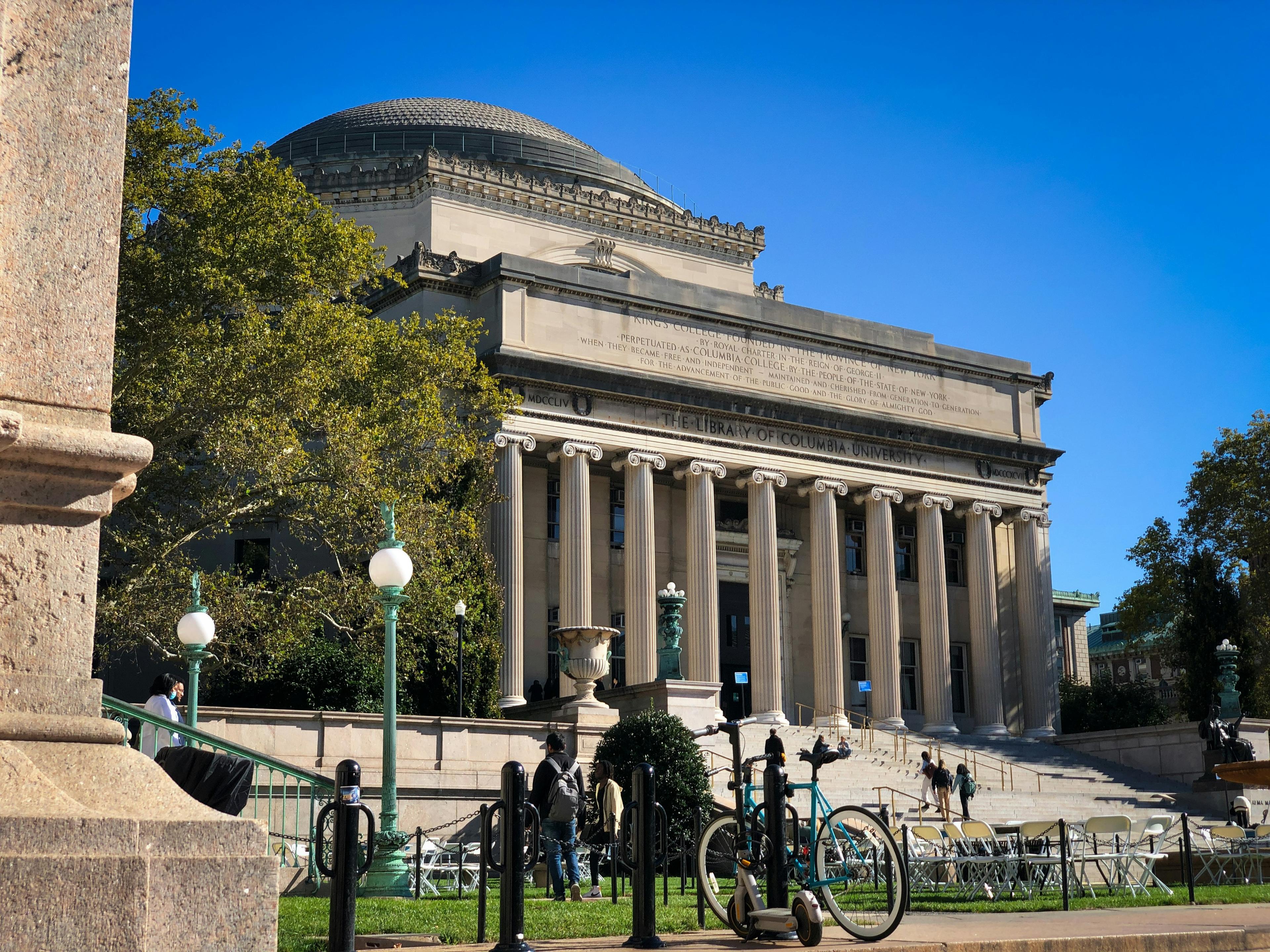
Welcome to Columbia Business School
The Columbia Community
Meet Admits & Applicants in Leland’s Free Slack Community
If you’re applying to Columbia, boost your odds by joining the Leland MBA Applicant Community. It’s a free, private community of MBA applicants, admits, and world-class admissions coaches, all here to answer questions, give feedback, share stories, and help each other through the admissions process.
Membership in the community is by invitation only. To apply, click below.
Columbia MBA Requirements
Application Checklist
1. Completed Online Application
All applicants must fill out Columbia Business School’s online application, which includes personal details, educational history, employment history, and short-answer questions. Columbia's MBA program requires applicants to provide details such as average GRE and GMAT scores, work experience requirements, and application deadlines. The average GMAT score for admitted students is 732, and the average GRE scores are 162 for both Verbal and Quantitative sections. Applicants should also note the application deadlines to ensure timely submission.
2. Academic Transcripts
- Candidates must provide transcripts from all undergraduate and graduate institutions attended.
- If a transcript is not in English, a certified translation must be included.
- Columbia does not require a specific GPA format; applicants should report their GPA as it appears on their official transcript.
- Those with a three-year undergraduate degree will be reviewed on a case-by-case basis.
3. Standardized Test Scores (GMAT, GRE, or Executive Assessment)
- CBS accepts GMAT, GRE, and Executive Assessment (EA) scores for the Full-Time MBA program.
- Applicants may submit the GMAT Focus Edition as well.
- Test scores must be valid for five years at the time of application submission.
- Self-reported scores are allowed for the initial application, but official scores must be submitted upon admission.
- Columbia’s test codes:
- GMAT/EA Code: QF8-N6-52
- GRE Code: 6442
Test Score Considerations:
- No minimum score is required, but competitive applicants generally score in the following range:
- GMAT: 600-780 (Average: 732)
- GRE Verbal: 146-170 (Average: 162)
- GRE Quantitative: 143-170 (Average: 162)
- Candidates cannot request a test score waiver.
4. One Letter of Recommendation
CBS requires only one recommendation letter, ideally from a current supervisor or someone who can provide insight into the applicant’s professional achievements and leadership skills.
- If an applicant cannot request a recommendation from a current supervisor, they must provide an explanation in the application.
- Recommenders should use a professional email address (personal emails are subject to additional verification).
- CBS may contact recommenders for verification, so applicants should notify them in advance.
5. Resume (One Page Preferred)
Applicants must submit a one-page professional resume that outlines their education, work experience, skills, and extracurricular activities.
- Full-time MBA applicants should focus on post-undergraduate work experience.
- Deferred Enrollment applicants can include internships and part-time work.
- Candidates should update their resume if they experience career changes during the admissions process.
6. Columbia Business School Essays
The essays provide applicants with the opportunity to showcase their career goals, leadership experience, and personal story.
Short-Answer Question (50 characters max)
- What is your immediate post-MBA professional goal?
Example: “Join a strategy consulting firm in NYC”
Essay 1 (300 words): Why do you feel Columbia Business School is a good fit for you?
This essay should connect Columbia’s resources, curriculum, and network to the applicant’s career goals. Strong responses include:
- Specific CBS professors, courses, or programs that align with professional ambitions.
- Mention of Columbia’s New York location and access to industries like finance, consulting, tech, or entrepreneurship.
- Discussion of leadership opportunities, student clubs, and global immersion programs.
Essay 2 (500 words): Tell us about a time you created value in a professional context.
This essay allows candidates to highlight their leadership, impact, and problem-solving abilities. Strong responses should:
- Provide a clear challenge or problem the applicant faced.
- Show specific actions taken to drive impact.
- Quantify results where possible (e.g., “Led a cost-reduction initiative that saved the company $1M annually”).
- Connect the experience to skills they plan to build at CBS.
Essay 3 (Optional): Is there anything else you would like to share?
This essay should only be used if:
- The applicant has unusual circumstances or gaps in their application (e.g., employment gaps, academic weaknesses).
- The applicant wants to highlight non-traditional experience, personal hardships, or diversity factors.
- If there’s nothing crucial to add, this essay can be skipped.
7. Application Fee: $250
- Columbia’s application fee is non-refundable.
- Deferred Enrollment applicants do not pay an application fee.
- Fee waivers are available for:
- Full-time students, active-duty military personnel, and Peace Corps/Teach for All members.
- Applicants facing financial hardship (proof of income may be required).
8. Interview (By Invitation Only)
- Interviews are not guaranteed and are invite-only based on the application review.
- Interviews are conducted by CBS alumni or admissions officers.
- They typically last 30-45 minutes and focus on:
- Motivation for an MBA
- Career goals and fit with Columbia
- Behavioral questions (e.g., leadership, teamwork, problem-solving)
Expert Tip: Candidates should research CBS thoroughly before the interview and prepare examples demonstrating their impact, leadership, and collaboration skills.
Read: MBA Application Requirements
Columbia MBA Core Curriculum & Class Structure
Year 1
- Core Curriculum:
- In the first year, students are grouped into clusters to take core courses together, providing a strong foundation in essential business disciplines. These core courses include Financial Accounting, Corporate Finance, Managerial Economics, Marketing Strategy, Operations Management, and Leadership & Organizational Change.
- Electives begin in the second semester.
Year 2
- Full Elective Schedule: Over 300 electives available.
- Opportunities: Study abroad, consulting projects, internships.
How to Get Into Columbia Business School
1. Build a Strong Academic Profile
A high GMAT or GRE score and a competitive GPA are key factors in demonstrating academic ability.
GMAT/GRE Score:
- GMAT: The average CBS student scores 732, with a range of 600-780.
- GRE: The average scores are 162 Verbal / 162 Quantitative.
- Columbia accepts GMAT Focus Edition and Executive Assessment (EA).
GPA:
- The average undergraduate GPA for admitted students is 3.6.
- While CBS does not have a strict GPA cutoff, candidates should demonstrate strong academic performance, particularly in quantitative courses.
Strengthen Quantitative Skills:
- If your GPA is below average, consider taking supplemental quantitative courses (e.g., financial accounting, business analytics) to show academic readiness.
International Applicants:
- CBS accepts three-year undergraduate degrees on a case-by-case basis.
2. Have Clear, Well-Defined Career Goals
Columbia values applicants who can clearly articulate why an MBA is necessary for their career trajectory.
Short-Term Goals:
- Clearly state what industry and function you want to enter immediately after graduation.
Long-Term Goals:
- Demonstrate a long-term vision for your career and how CBS fits into that plan.
Show Industry Knowledge:
- Be specific. Instead of saying, "I want to work in consulting," say, "I aim to join McKinsey’s digital transformation practice and help Fortune 500 companies navigate AI-driven business strategies."
Tie Your Goals to Columbia:
- Mention specific CBS resources, courses, or professors that align with your goals.
- Example: "Columbia’s focus on Value Investing through the Heilbrunn Center aligns perfectly with my goal of managing a hedge fund."
3. Demonstrate Leadership & Impact
Columbia prioritizes leadership and teamwork experience. Applicants must showcase moments where they:
- Led a team or project
- Drove measurable impact in an organization
- Demonstrated resilience and problem-solving skills
- Took initiative outside of their core job responsibilities
A professional development certificate program emphasizing business excellence can help individuals achieve personal and professional growth through customized learning paths, access to esteemed faculty, and a strong alumni network.
Strong leadership examples for your application:
- At Work: “Led a team of five to implement a new AI-driven pricing model, increasing company revenue by 15%.”
- In a Startup: “Founded an EdTech startup that reached 10,000 users within the first year.”
- In a Nonprofit: “Launched a mentorship program for underprivileged students, securing $50,000 in funding.”
Use quantifiable metrics in your essays and resume to showcase impact (e.g., revenue growth, team size, funding secured, efficiency improvements).
4. Engage with Columbia Business School
Columbia’s admissions team values applicants who show genuine interest in the school. Take the time to:
Attend CBS Admissions Events:
- Join info sessions, webinars, and MBA fairs.
- Participate in on-campus visits and networking events.
Connect with CBS Alumni & Students:
- Reach out to CBS alumni on LinkedIn.
- Attend Coffee Chats or Virtual Meetups.
Engage with CBS Clubs & Centers:
- If you’re interested in finance, mention The Value Investing Program.
- If you’re pursuing entrepreneurship, reference The Lang Center for Entrepreneurship.
Demonstrate Fit in Your Essays:
- Show why CBS is the right school for you (beyond just being in NYC).
5. Nail the Columbia MBA Interview
- Interviews are by invitation only – meaning if you get one, you’re a strong candidate.
- CBS interviews are conducted by alumni who focus on:
- Career goals and why Columbia is the right fit.
- Leadership and teamwork experiences.
- Behavioral questions (e.g., Tell me about a time you handled a conflict in a team.)
Use the STAR Method (Situation, Task, Action, Result) to structure responses.
6. Apply Early for a Competitive Advantage
Columbia uses a rolling admissions process for January-entry applicants and a rounds-based process for August-entry applicants.
Columbia Business School Notable Alumni & Faculty
Notable Alumni
- Warren Buffett: CEO of Berkshire Hathaway, renowned investor, and philanthropist.
- Henry Kravis: Co-founder of Kohlberg Kravis Roberts & Co. (KKR), a global investment firm.
- Vikram Pandit: Former CEO of Citigroup, a leading global bank.
- Melinda Gates: Co-chair of the Bill & Melinda Gates Foundation, focusing on global health and education initiatives.
- Tarek Sherif: Chairman and CEO of Medidata Solutions, a leader in clinical trial technology.
- Nina Tandon: CEO and co-founder of EpiBone, a company pioneering bone tissue engineering.
- Josh Makower: Special partner at New Enterprise Associates, with a focus on medical devices and healthcare innovation.
Columbia Business School Faculty
- Joseph Stiglitz: Nobel Laureate in Economics, recognized for his work on information asymmetry and global economic policies.
- R. Glenn Hubbard: Former Dean of Columbia Business School and an authority on economic policy and public finance.
- Bruce Greenwald: Expert in value investing and economics, known for his insightful teachings and publications.
- Gita V. Johar: Meyer Feldberg Professor of Business, recognized for her research in consumer psychology and marketing strategies.
- Adam Galinsky: Paul Calello Professor of Leadership and Ethics, acclaimed for his work on leadership, negotiations, and decision-making.
- Lawrence R. Glosten: S. Sloan Colt Professor of Banking and International Finance, noted for his research in financial markets and microstructure.
- Adjunct Professors: Contributing to the teaching of classes alongside full-time faculty and executives in residence, showcasing a diverse faculty composition.
Get Into Columbia Business School With the Help of Experts
Applying to Columbia Business School is highly competitive. Working with an expert coach can help refine your application, essays, and interview responses.
Here are three of the most popular MBA admissions consultants for Columbia Business School.
- Victoria R.- Columbia MBA, Forte Fellow | Expert in essays, interviews, & school selection | 20+ CBS admits
- Melanie E. - Ex-McKinsey, CBS MBA | 100+ M7 admits | Former CBS MBA interviewer | Specializes in storytelling & leadership positioning
- London L.- Columbia MBA, Consortium Fellow | Former Accenture Consultant | Expert in career pivots, essays, & interviews
See: The 10 Best MBA Admissions Consultants
Related Articles:
For more resources as you apply to business school, check out these resources:
- The Different Types of MBA Programs—and Which One is Right for You
- What is an MBA Degree? An Expert Guide
- Columbia MBA Majors: Real Estate, Healthcare, & More
- The Complete MBA Application Guide
- T25 MBA Acceptance Rates, GPA, & Test Scores
- The Top 25 MBA Programs—Acceptance Rates, Tuition, and More
- MBA Requirements: What You Need to Apply (and What Top Programs Really Look For)
FAQs
Is Columbia Business School an Ivy League?
- Yes, Columbia Business School (CBS) is part of Columbia University, which is a member of the Ivy League, a group of eight prestigious private universities in the U.S. While the Ivy League originally referred to athletic conferences, it is now associated with academic excellence and prestige.
Is it difficult to get into Columbia Business School?
- Yes, Columbia Business School is highly competitive, with an acceptance rate of approximately 21% for the Class of 2026. Admissions are based on a holistic review of GMAT/GRE scores, academic performance, work experience, leadership potential, and personal essays.
How prestigious is Columbia Business School?
- Columbia Business School is one of the top-ranked business schools globally, consistently placing in the top 10 MBA programs in the world. Located in New York City, CBS has strong connections to finance, consulting, technology, and entrepreneurship, making it a sought-after choice for professionals looking to advance their careers.
Which business school is better, NYU or Columbia?
- Both Columbia Business School (CBS) and NYU Stern are highly respected, but CBS is generally ranked higher in global MBA rankings. Columbia has stronger ties to finance and consulting, while NYU Stern is known for finance, entertainment, and technology. The choice depends on your career goals, network preferences, and academic focus.
What is the number one business school?
- The top business school in the world varies by ranking system, but Harvard Business School (HBS), Stanford Graduate School of Business (GSB), and The Wharton School (UPenn) are often ranked at the top. Columbia Business School is consistently ranked among the top 10 MBA programs globally.
Browse hundreds of expert coaches
Leland coaches have helped thousands of people achieve their goals. A dedicated mentor can make all the difference.












